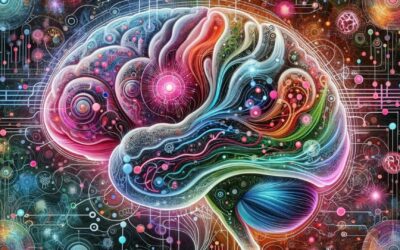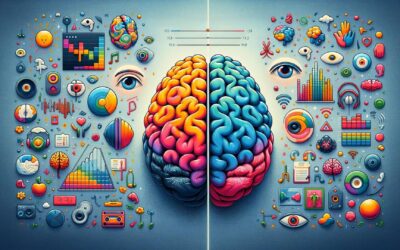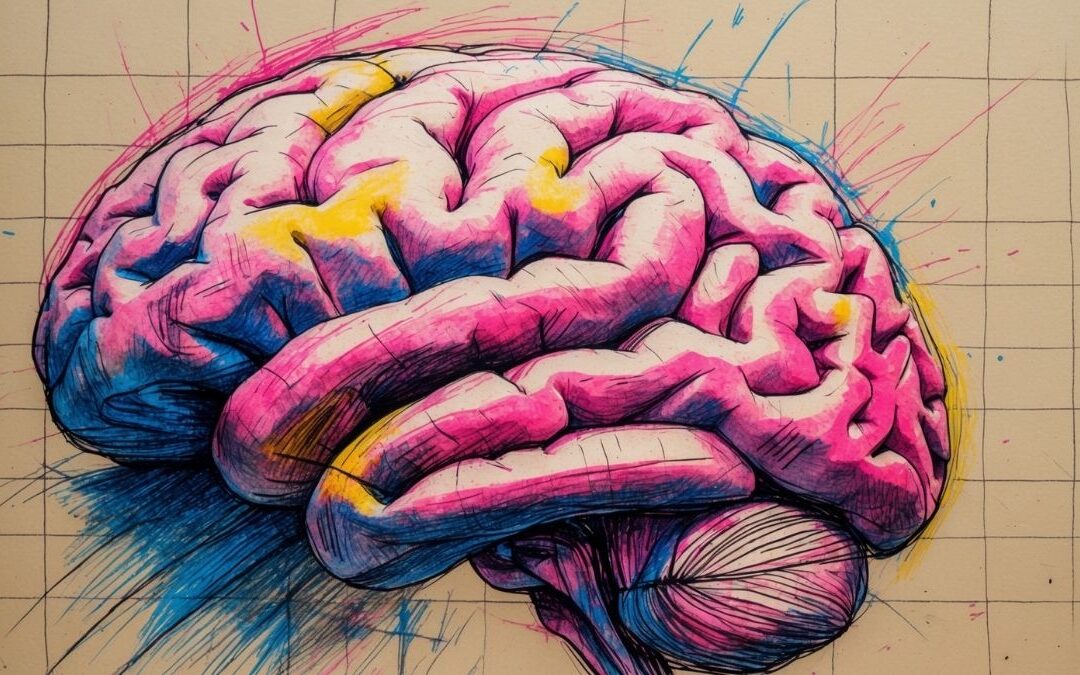ADHD: It’s Not About Willpower
Imagine your brain is a bustling city with a slightly chaotic traffic control system. ADHD disrupts that system, making it difficult to regulate attention, filter out distractions, and control impulses. This isn’t about being lazy or unmotivated – it’s about how your brain is wired.
How ADHD Impacts Learning
- Focus on Fleeting: Paying attention for long periods feels like herding cats. Lectures, long readings, or instructions easily lose their grip on your mind.
- Distraction Magnet: Did a bird chirp outside? A classmate cough? Every little stimulus can pull you away from the task at hand.
- Working Memory Hiccups: Your mental “sticky note” for holding information isn’t very sticky. This makes tasks like following multi-step directions a major headache.
- Restless Energy: Sitting still feels impossible. An intense need for movement can make you fidget, get out of your seat, and disrupt the flow of the classroom.
The ADHD Brain
Picture your brain as a network of highways. In ADHD, communication along those highways is a bit different than in someone without the condition:
- Messengers are Slow: Neurotransmitters – chemicals that carry messages between brain cells – don’t flow as efficiently in key areas, particularly those responsible for focus and attention.
- Under Construction: Some brain regions linked to attention and impulse control may develop at a slower pace in people with ADHD.
The Good News
ADHD is not a roadblock, it’s a detour. Here’s the key: Understanding how ADHD affects your brain helps you find the strategies and supports that work best for you:
- Medication: Stimulants used to treat ADHD boost neurotransmitters, easing focus issues.
- Skill-building: Learn techniques to break tasks into smaller chunks, combat distractions, and manage hyperactivity.
- Classroom accommodations: Extra time on tests, preferential seating, and fidget tools can be game-changers.
- The Right Mindset: ADHD brains are often creative, energetic, and hyper-focused on things that are truly engaging! Recognizing your strengths helps build confidence.
Take Action
- Seek Support: If you think you or a loved one may have ADHD, don’t self-diagnose. Consult a professional for proper assessment and guidance.
- Explore Strategies: There’s no one-size-fits-all approach. Work with educators and therapists to find what helps you focus and shine.
- Become an Advocate: Educate yourself and others about ADHD. The more we understand these brain differences, the more we can support and celebrate those who think outside the box.
Remember, with the right tools and understanding, an ADHD brain can accomplish incredible things!
Why Should You Care?
- If you or a loved one struggle with focus: Understanding ADHD unlocks the right tools and strategies essential for success in school, work, and life.
- Breaking down stigma: Learning about ADHD helps challenge harmful stereotypes and fosters an environment of support and understanding.
- Supporting students: Teachers and parents equipped with knowledge about ADHD can better support children and create more inclusive learning environments.
Key Takeaways
- ADHD is a brain-based challenge: It’s about differences in neurotransmitter activity and brain development, not a lack of willpower.
- ADHD impacts attention, focus, and impulse control: This can lead to struggles with schoolwork, listening, and self-regulation.
- Strategies and support make a difference: Medication, skill-building, classroom accommodations, and a strength-based approach all pave the way for success.
Keywords
- ADHD (Attention-Deficit/Hyperactivity Disorder): A neurodevelopmental disorder characterized by inattention, hyperactivity, and/or impulsivity.
- Focus: The ability to concentrate on a specific task or thought for a sustained period.
- Distractions: Things that pull your attention away from the task at hand, can be external (sights, sounds) or internal (wandering thoughts).
- Impulsivity: Acting without fully considering potential consequences.
- Neurotransmitters: Chemical messengers in the brain that help regulate mood, focus, and other functions.
- Working memory: The mental workspace for temporarily holding and manipulating information.
- Accommodations: Adjustments made in the classroom to level the playing field so students with ADHD can reach their full potential.
- Hyperfocus: Intense and prolonged focus on activities that are highly stimulating or enjoyable.
- Medication: Often, stimulants are prescribed to treat ADHD, helping regulate neurotransmitters and improve focus.
- Self-Advocacy: Speaking up for your needs and educating others about how ADHD impacts you.
Frequently Asked Questions
- Isn’t ADHD just overdiagnosed? While misdiagnosis can occur, research supports ADHD as a real condition. Seek professional evaluation for accurate diagnosis.
- Do people outgrow ADHD? While symptoms may change over time, ADHD is a lifelong condition for most people, but strategies can help manage it effectively.
- Can therapy help without medication? Absolutely! Therapy teaches coping skills, strategies for time management, organization, and emotional regulation.
Myth Buster
- Myth: People with ADHD are just lazy or unmotivated.
- Reality: ADHD is about brain differences affecting focus and impulse control, it’s not about a lack of effort.
Let’s Talk
- Have you or anyone you know experienced the challenges of ADHD? What strategies helped?
- How can educators create more inclusive classrooms for students with ADHD?
- How can we reduce the stigma around ADHD and mental health in general?
Share your thoughts in the comments section below!










0 Comments